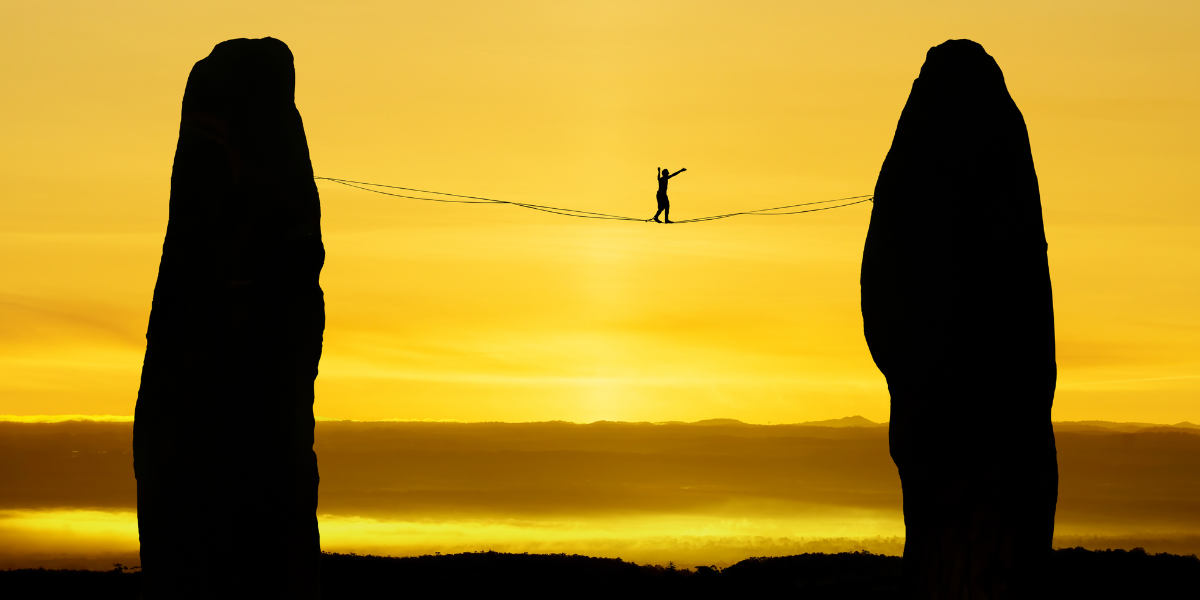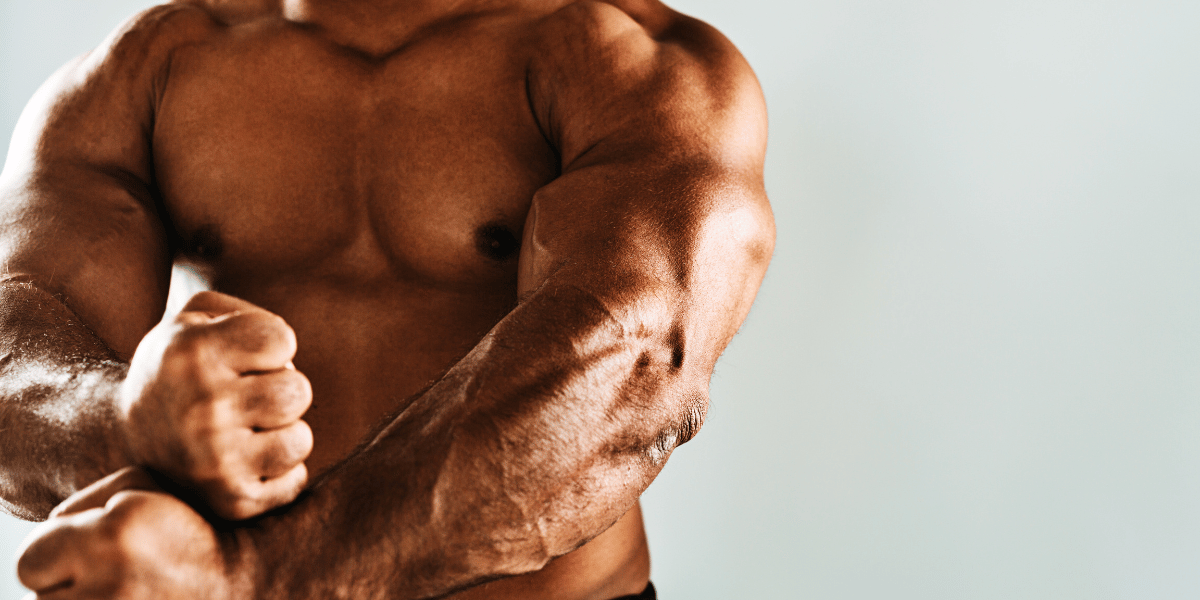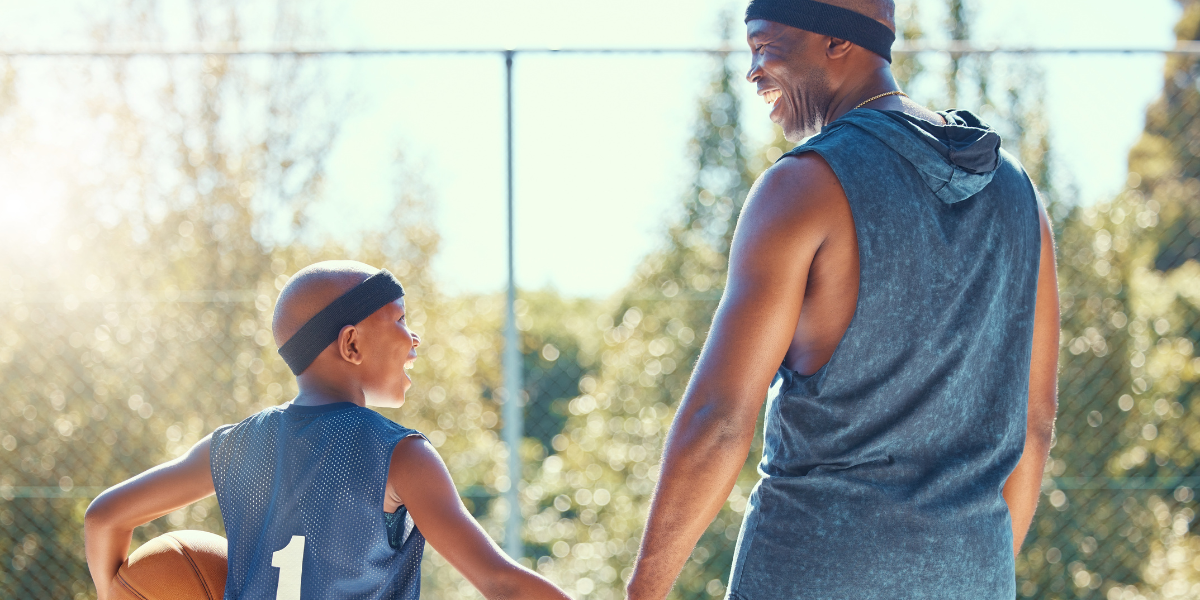Symptoms of Low Testosterone
Hormones are powerful molecules producing both obvious and subtle effects. Their production in the human body relies on complex interactions that can...
.png?width=70&height=70&name=Stark_LogoMark%20(1).png)

Disclaimer: Chronic stress is a genuine concern in our current environment. Continuous "fight-or-flight" responses and prolonged cortisol exposure plague countless individuals, and their health and body composition suffers. However, this article is not focused on stress management or reduction, and it is not about taking phosphatidylserine or preventing overtraining. The title is not just clever click-bait or a guise of something less serious: we need stress.
Stress is growth. We need to feel uncomfortable. We need suffering. We require it to grow emotionally, mentally, spiritually, and of course, physically. The stimulus for growth is pressure and discomfort. Today, people flee from discomfort. It is instinctual that humans want to chase what feels good- food in our stomachs, a good night's rest, a hug from someone we love. The thought of being uncomfortable and suffering does not sound like heaps of fun to the average person.
As the world around us changes, so do our desires and drives; our wants feel like needs and why work harder when we can work smarter. There may be benefits to this, but there are also down sides. We have gotten soft. Disney's "Wall-E" has an eerily accurate depiction of humans of the future--helpless and pathetic. Just a few decades ago there weren't any "Spoiler Alerts." When you walked out of "Empire Strikes Back," you didn't call twenty friends, yell "Spoiler Alert" and then go on about Darth Vader being Luke Skywalker's father. You simply kept your mouth shut. Today, people get hot-and-bothered the moment someone begins discussing a movie they have yet to see. Even if they spoiled it, who cares? It's a movie. It's make-believe. Are we permanently 10 years old?
In today's society, we are often insulated from discomfort by convenience and technology. This phenomenon, known as the "comfort crisis," refers to the idea that avoiding discomfort might actually be detrimental to our growth and well-being. From climate-controlled homes to on-demand entertainment, we have engineered a world where comfort is the norm. This constant state of ease, however, can lead us to become less resilient, less adaptive, and less capable of handling life's inevitable challenges. Without the need to frequently step out of our comfort zones, we may find ourselves unprepared when we inevitably must face adversity. We are raising a generation with Peter Pan syndrome--they never want to grow up and feel uncomfortable.
According to Sociologists, there were Five "Milestones" that indicated you transitioned to adulthood:
Finishing school (High School or College)
Moving away from home
Becoming financially independent
Getting married
Having a child
If you are an entrepreneur, the business is your baby, so that counts. It is not uncommon for an entrepreneur to get out of bed at 3 AM to investigate a leak at the warehouse, similar to a parent getting up at 3 to change the baby. In 1960, 65% of men had checked all five boxes by 30 years old. In 2000, the number dropped to a third. Almost 60 percent of parents are now giving money to their grown kids—an average of $38,340 per child. 85% of college kids plan to move back home after graduation. This article isn't just about the young, either. Many Gen-X and Boomers find their growth stunted all the same. They tell me they worked feverishly in their heyday so that they can live luxuriously for the rest of their lives. Just because you found success and wealth, doesn't mean you should stop growing. Many of these people are the same ones that now struggle to break out of their decades-old bad habits and establish healthy new ones so they can live long enough to enjoy the life they built. Men and women, across all age groups, are getting unhappier, and its effects are very real.
Endocrinologist Hans Selye discovered the General Adaptation Syndrome and unintentionally gave birth to Exercise Science. He identified two types of stress: Eustress (good) and Distress (bad). In today's culture, it is not as simple as "Exercise: good stress, Being Late: bad stress."
Stress is about perspective. Research shows that how we observe stress alters its influence on us. While most of us consider exercising a "eustress," there are many who are petrified by it and perceive it as a "distress." Today, the spectrum of "good stress and bad stress" is becoming profoundly asymmetrical. More things are finding their way into the "bad stress" category, and the "good stress" column is rapidly emptying. It is getting to the point where "stress" of any form will be avoided in lieu of comfort and convenience. Is "Wall-E" more prophecy than children's movie?
Researchers at UC Berkeley found that perspective and how you look at stress changes its effects on your physiology. If you look at a stressor as a distress, it can negatively impact your circulatory system, brain, and immune system. But, if you look at the exact same stressor as a eustress, it can have the opposite effect.
Stress is a teacher- the better the perspective, the better the lesson. We know too many people who shield themselves or are shielded by others from failure or setbacks. When they eventually experience it, they are frightfully ill-equipped and unable to cope. It's true for exercise, sports, business, and romance. We need to experience strife in our fitness goals, we need to fail at business and school, we need to lose the game and not get a trophy, and we need to feel heartbreak.
Everything we appreciate today is the product of someone's suffering and stress. Every time you cross the Golden Gate Bridge, use your iPhone, or drive your car, you are experiencing the fruits of someone's struggle. If we sought calm and comfort all the time, nothing would get done, nothing would matter, and we would be empty and purposeless people. Purpose stems from struggle, not from comfort. During the Great Depression, those who were charged with finding work for the unemployed described the people they encountered. They were described as "lifeless," almost zombie-like. They loathed the idea of charity and handouts. They did not want welfare. They wanted to work. They wanted to provide for their families with their own labor. They wanted to contribute. They would have gone into the mines or work on tall buildings, risking life and limb.
At this point, I should pause and address the word "suffering," which is not hyperbolic, I don't mean suffering as in "torture." The etymology of the word Passion is "passio," meaning "to suffer, endure." Suffering is passion and passion is suffering. If you choose to avoid suffering, you are also missing out on passion. Think about those who are passionate about their music, art, sport, faith, business, or family. Every single one of them knows what it means to suffer for the things they love. I don't know about you, but I dread the idea of a passionless life. Because we choose passion, we must accept suffering as an inevitable consequence.
We have briefly talked about "eustress" and "distress." Enter: "edustress." You won't find that word in any dictionary, I made it up- for better or worse. It is the type of stress, pressure, and discomfort that teaches you something about yourself. Using the correct perspective, any "stressor" can qualify as an "edustress," but there are ones that stand out above others.
Do something that scares or intimidates you, or that appears uncomfortable.
Increase your training frequency. For hypertrophy, various frequencies work, but for strength and improving motion patterns, the higher frequency wins. That doesn't mean "Bulgarian Style" daily maxes. It means a daily commitment to practice. Fitness is a skill.
It's ok to train when you're sore. Everyone is so concerned about "overtraining," that when they feel the slightest tenderness in their biceps, it prompts a "recovery week." You can train a muscle while it is sore. You won't succumb to rhabdo.
Be cold. Cold showers, ice baths, and cryotherapy boost immune system, circulatory function and your grit. Considering the time investment, it's worth it. If you're a beginner, run a bath with the water temperature down as low as it goes. Add in some ice from your freezer. Hang in there for as long as you can. You'll want to jump out, but don't. Soon, you'll be able to handle longer exposures and feel more resilient.
Camp. I don't mean Glamping. That's essentially going to the Ritz Carlton with a tree in your room. Rough it. Eat some canned sardines, try to catch a fish and shiver (or sweat) a little.
Pick up a musical instrument or learn a new language. Remind yourself what it's like to be awful at something again. Stick with it, and you'll be ordering like a pro in French restaurants or playing the Moonlight Sonata in no time.
Begin a martial art. I won't be snobby about which one you choose. Start as a white belt with the other beginners. Get outpointed by a 10-year-old in karate or smashed by a wrestler in jiu-jitsu. It's good for you.
Compete in something new. If they give you a trophy, throw it away. That's not the point. Don't know where to start? Try powerlifting. The rules are simple and the required skill set allows for all age groups to participate. At the last competition I coached at, I witnessed a 70-year-old lady in her 30th competition. Every lift, regardless of weight, brought a smile to my face. If your joints can take it, run a marathon or 10k. Better yet, escort a person with special needs through one. There's no reason pushing yourself can't benefit someone else.
Take on something that makes you live beyond yourself.
This is probably the most important form of edustress. It's not a code for "collectivism." I'm referring to you harnessing your strong individuality to build and create something special.
Already dating "the one"? Put a ring on it- what are you waiting for?
Start a business.
Start a family.
Run for public office.
If you're still in high school, run for associated student body (ASB). Yes, it's a popularity contest, but who cares? Join a new club or pick up a sport, at least get outside and off the screens.
There must also be a simultaneous removal of the influences that block these forms of "edustress." We need to remove the bubble wrap off your soul.
Get out of the habit of using the phrase, "bio hack." It's an intellectual form of the word "shortcut."
Kids, reduce video games. The average American will have spent 10,000 hours playing video games by their 21st birthday. I don't think that's what Malcolm Gladwell meant by his "10,000-hour rule," in the book, "Outliers."
Adults, get off the screens. You will never look back on life wishing you had skipped your child's big game, but you likely already regret the hours you lost last night mindlessly playing Candy Crush.
Calm down on the social media. That goes for everyone. A study released from the University of Pennsylvania showed a direct link between social media and depression and loneliness. 143 participants were put into two groups. One group was instructed to continue their social media use as normal, whereas the second group was limited to 30m per day. The limited use group showed significant reductions in loneliness and depression over three weeks. This brings intense irony to the title "Social Media."
Too often we misconstrue purpose and happiness. People chase happiness, try to escape discomfort and stress, and assume it leads to purpose and meaning. It doesn't. Purpose, meaning, and happiness come from duty and responsibility. Those responsibilities come with stress, pressure, and suffering. Don't get comfortable. Seek pressure. Pressure can burst pipes and can forge diamonds. We need more diamonds, not snowflakes. "Wall-E" doesn't have to be a documentary or a prophecy. Pursue the strenuous life and you'll find an existence with abundant growth, health, meaning, and happiness.

Hormones are powerful molecules producing both obvious and subtle effects. Their production in the human body relies on complex interactions that can...

In today's fast-paced world, the quest for holistic wellness has led many to explore alternative forms of exercise. Somatic exercise, rooted in the...

For many parents, the singular devotion to their children's wellbeing can often lead them to neglect their own health. The relentless schedule of...